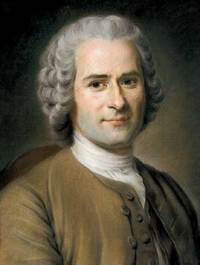About the Author: Jean-Jacques Rousseau

Jean-Jacques Rousseau remains an important figure in the history of philosophy, both because of his contributions to political philosophy and moral psychology and because of his influence on later thinkers. Rousseau's own view of philosophy and philosophers was firmly negative, seeing philosophers as the post-hoc rationalizers of self-interest, as apologists for various forms of tyranny, and as playing a role in the alienation of the modern individual from humanity's natural impulse to compassion. The concern that dominates Rousseau's work is to find a way of preserving human freedom in a world where human beings are increasingly dependent on one another for the satisfaction of their needs. This concern has two dimensions: material and psychological, of which the latter has greater importance. In the modern world, human beings come to derive their very sense of self from the opinion of others, a fact which Rousseau sees as corrosive of freedom and destructive of individual authenticity. In his mature work, he principally explores two routes to achieving and protecting freedom: the first is a political one aimed at constructing political institutions that allow for the co-existence of free and equal citizens in a community where they themselves are sovereign; the second is a project for child development and education that fosters autonomy and avoids the development of the most destructive forms of self-interest. However, though Rousseau believes the co-existence of human beings in relations of equality and freedom is possible, he is consistently and overwhelmingly pessimistic that humanity will escape from a dystopia of alienation, oppression, and unfreedom. In addition to his contributions to philosophy, Rousseau was active as a composer and a music theorist, as the pioneer of modern autobiography, as a novelist, and as a botanist. Rousseau's appreciation of the wonders of nature and his stress on the importance of feeling and emotion made him an important influence on and anticipator of the romantic movement. To a very large extent, the interests and concerns that mark his philosophical work also inform these other activities, and Rousseau's contributions in ostensibly non-philosophical fields often serve to illuminate his philosophical commitments and arguments.



